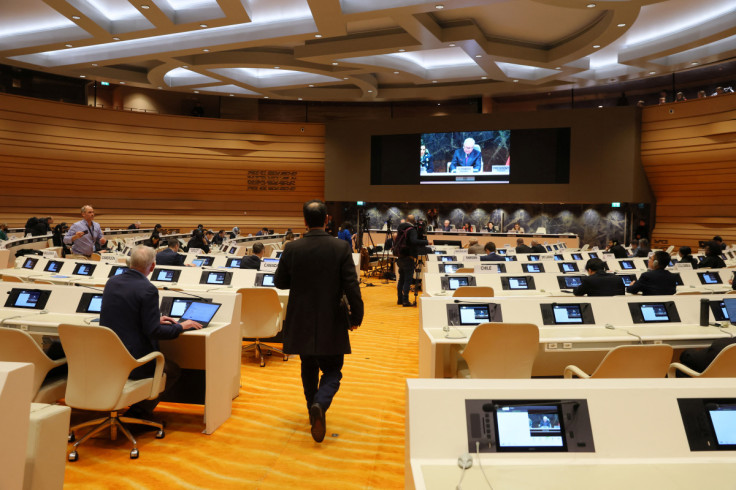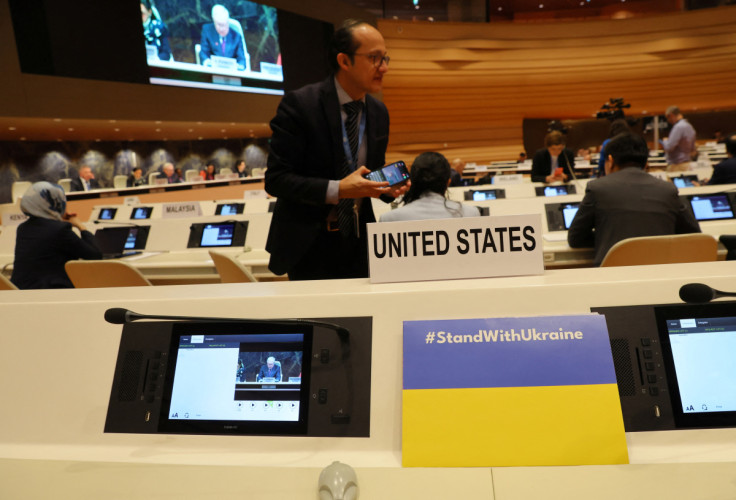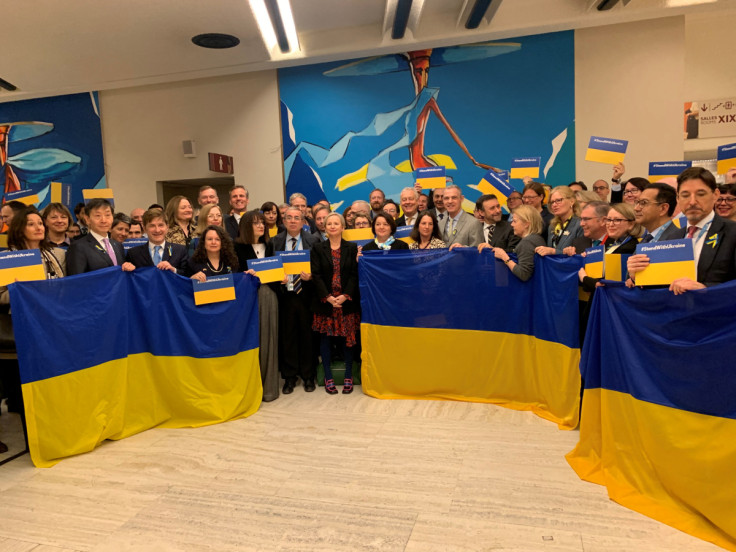Russia Says It Suspended Nuclear Pact Because U.S. Was Using It To Help Ukraine

Russian Deputy Foreign Minister Sergei Ryabkov said on Thursday that Moscow had been forced to suspend its participation in the New START nuclear arms control treaty because Washington was using it to help Ukraine attack Russian strategic sites.
Speaking at the United Nations Conference on Disarmament in Geneva, Ryabkov said that the United States and its Western allies wanted to see Russia strategically defeated in Ukraine and accused them of fanning conflict there.
"The situation further degraded after U.S. attempts to 'probe' the security of Russian strategic facilities declared under the New START Treaty by assisting the Kyiv regime in conducting armed attacks against them," Ryabkov said.
"Under these circumstances, we were forced to announce the suspension of the treaty."
Protesting Ryabkov's presence at the event, the permanent representatives of the United States, France and other Western countries at the U.N. in Geneva stood outside the conference room, posing with blue and yellow Ukrainian flags and signs that read #standwithukraine.
"We wanted to be clear that we ambassadors are not going to be sitting in the Conference on Disarmament or the Human Rights Council listening to the lies and distortions of some Russian deputy foreign minister," Simon Manley, British ambassador to the United Nations in Geneva, told Reuters.
"We want to show we are here with Ukraine, day in and day out, and support their fight for their freedom."
President Vladimir Putin announced last week that Russia was suspending its participation in New START, and signed a law to that effect on Tuesday.
Signed by then-U.S. president Barack Obama and his Russian counterpart Dmitry Medvedev in 2010, the treaty caps the number of strategic nuclear warheads that each side can deploy.
Ryabkov, who had previously said the two countries continued to discuss issues around the treaty via "closed channels", said on Thursday that Russia would continue to comply with the limits on strategic offensive arms set by the pact.
Due to expire in 2026, the treaty allows each country to physically check the other's nuclear arsenal, although tensions over Ukraine had already brought inspections to a halt.


© Copyright Thomson Reuters 2024. All rights reserved.





















